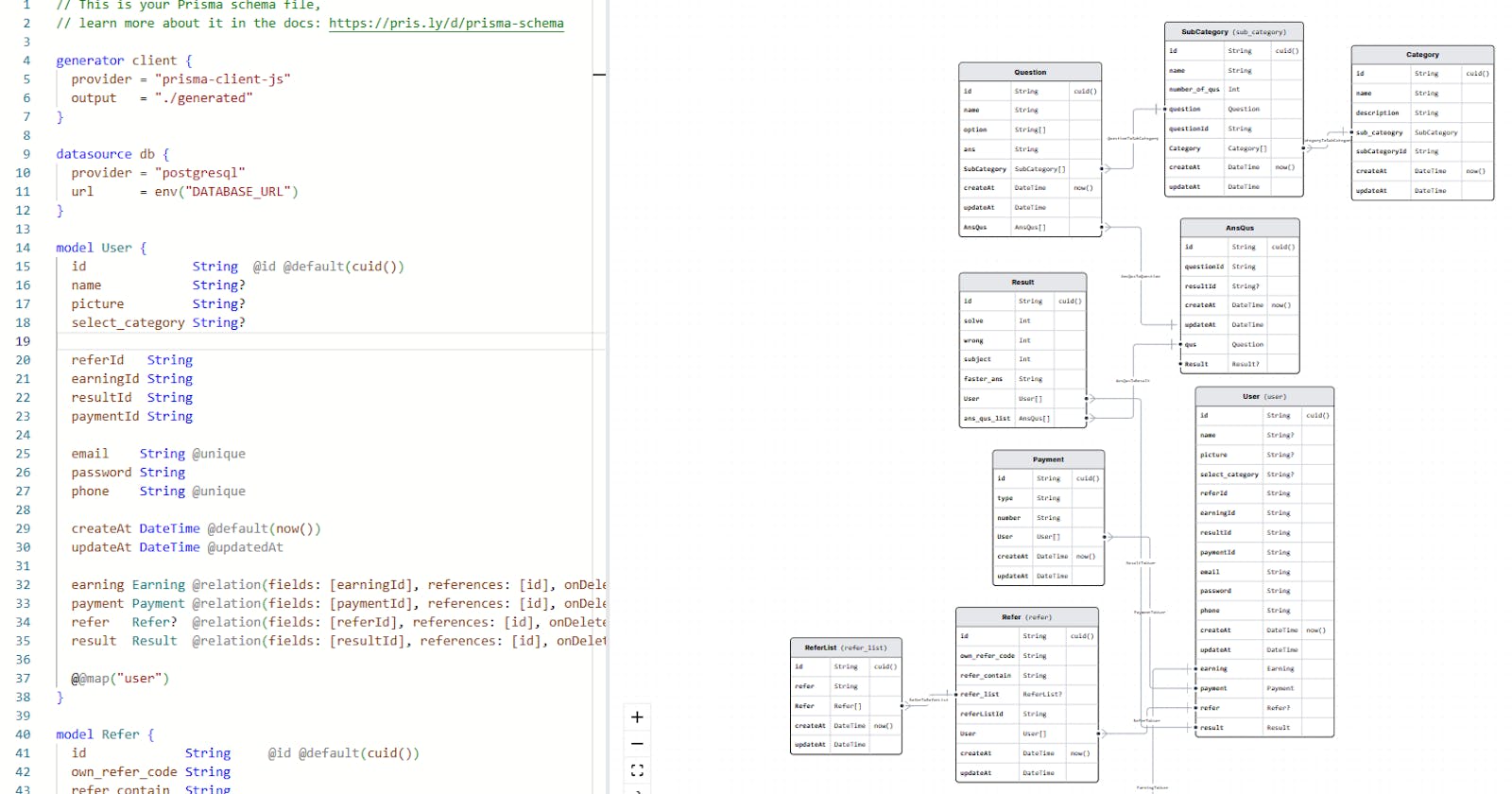Prisma: Empowering Modern Database Management for Web Applications
Mastering Prisma: A Guide to Streamlined Database Development
Support me | For Buy some Coffee.
Hire me
Prisma is an open-source database toolkit and Object-Relational Mapping (ORM) library that simplifies database access and management in web applications. It's often used with Node.js and TypeScript to work with databases such as PostgreSQL, MySQL, SQLite, and SQL Server. Prisma provides several benefits:
Type-Safe Queries: Prisma generates TypeScript types for your database schema, which means you can write type-safe queries and avoid runtime errors related to database interactions. This helps catch potential issues at compile time.
Database Agnostic: Prisma supports multiple database systems, allowing you to switch databases easily without rewriting your application's code.
Auto-Generated CRUD Operations: Prisma automatically generates CRUD (Create, Read, Update, Delete) operations based on your database schema, reducing the amount of boilerplate code you need to write for basic database operations.
Declarative Schema: Prisma uses a declarative schema definition written in a dedicated Prisma Schema Language (PSL). This schema definition serves as the single source of truth for your database structure and relationships.
Data Migrations: Prisma supports data migrations, making it easier to evolve your database schema over time without manually writing SQL migration scripts.
Efficient Queries: Prisma optimizes the generated SQL queries to improve performance, reducing the risk of inefficient database interactions.
Real-time Data Sync: With Prisma Client, you can easily set up real-time data synchronization with WebSocket-based subscriptions, making it suitable for building real-time applications.
Integration with GraphQL: Prisma is often used with GraphQL to build powerful and efficient APIs. Prisma can generate GraphQL CRUD resolvers, making it easier to set up a GraphQL server.
Community and Ecosystem: Prisma has a growing community and ecosystem of plugins and tools, making it easier to extend and integrate into your stack.
Regarding the benefits of using proper database design in general (independent of Prisma):
Data Integrity: A well-designed database ensures data integrity by defining constraints, relationships, and data types. This reduces the likelihood of data corruption or inconsistencies.
Efficiency: Properly designed databases are optimized for querying and data retrieval, leading to better application performance.
Scalability: Good database design can make it easier to scale your application as the data volume grows. It allows for efficient indexing and querying strategies.
Maintenance: A well-structured database is easier to maintain and evolve over time. It reduces the complexity of making schema changes and adding new features.
Security: Proper database design includes access control and authentication mechanisms to protect your data from unauthorized access.
Data Reporting: A well-designed database can facilitate data reporting and analysis, as it's easier to extract relevant information from a structured database.
In summary, Prisma simplifies database access and management by providing a type-safe and efficient way to interact with databases, while proper database design is essential for data integrity, performance, scalability, and long-term maintenance of your applications. Both Prisma and good database design practices play crucial roles in building robust and efficient software systems.
